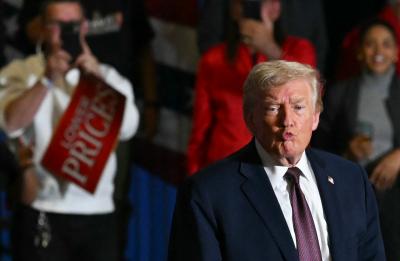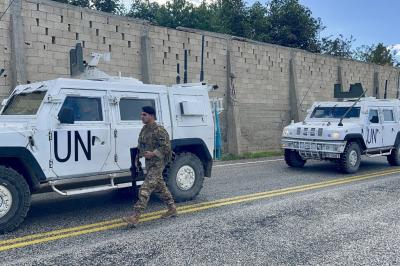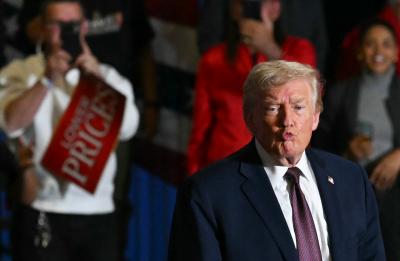This May – the month in which Israel celebrates its founding – has witnessed what can only be described as a near-global diplomatic shift against that country. And strikingly, Israel’s staunchest backer, the United States, has not been entirely absent from this transformation, although indirectly.
The change marks the beginning of a shift in how historically loyal allies, such as the United Kingdom, France, and Canada, perceive and engage with Israel. These are nations that, until recently, had embraced Israeli policies almost unconditionally. It is no coincidence that their stances are hardening just as the war in Gaza resumes.
Popular Outrage Embarrasses Governments
In the immediate aftermath of Hamas’s “Al-Aqsa Flood” operation on October 7, 2023, the global mood tilted in Israel’s favor. Media coverage of the initial violence generated broad sympathy for the Israeli side. But as the days passed and images of intensifying, indiscriminate attacks on Palestinian civilians began to dominate headlines, public sentiment shifted. This growing outrage, particularly at the grassroots level, started to put serious pressure on traditionally pro-Israel governments.
Despite widespread protests and mounting criticism, Israeli Prime Minister Benjamin Netanyahu doubled down on his policies, ignoring even American objections and causing significant discomfort in Washington. But a pivotal change came with the election of Republican President Donald Trump.
While initially subtle and far from dramatic, this shift gained traction as Israel resumed its offensive against Gaza after a temporary truce with Hamas. The war, increasingly devoid of political justification, even from Trump’s own perspective, devolved into what many now see as daily massacres. Global silence began to look scandalous.
Massive demonstrations erupted once again across the West, not in support of Hamas, but demanding an end to what many now view as a senseless war. Even within Israel, opinion polls showed that a majority of Israelis favor a prisoner exchange deal – even if it meant halting the war. For the first time in decades, Israeli actions were causing a tangible rift with its most important ally.
As Netanyahu’s defiance alienated the Trump administration, Western voices grew bolder, echoing the outrage of their citizens. Strong political statements, couched in firm legal language, began characterizing Israeli actions as violations of international law. This was followed by calls to reassess bilateral ties, freeze or cancel military and economic cooperation, and impose sanctions.
What truly alarmed Netanyahu was that the backlash was no longer confined to civil society, labor unions, or the media – it had reached parliaments and governments.
Europe Breaks Silence
Six European countries – Ireland, Spain, Slovenia, Luxembourg, Norway, and Iceland – condemned Israel’s attempt to alter Gaza’s demographics, labeling it “forcible transfer” and a “crime” under international law. They also denounced the ongoing Israeli blockade, in place since March 2, as a total impediment to humanitarian aid and commercial supplies.
France, meanwhile, stepped up diplomatic pressure, urging an immediate ceasefire, an end to the blockade, and serious facilitation of aid into Gaza. Paris also announced plans for an international conference aimed at full recognition of a Palestinian state, hoping to sway staunch Israel supporters like the UK and Canada to join – a move already gaining traction among numerous Western nations.
The UK canceled its free trade agreement talks with Israel, halted planned arms exports, summoned Israeli ambassador Tzipi Hotovely for a diplomatic rebuke, and imposed sanctions on several Israeli settlers. Britain, once the very sponsor of Israel’s creation, hinted at more diplomatic actions – a significant shift.
Germany, another long-time ally, voiced concerns about humanitarian aid and called for a ceasefire. The Netherlands launched a campaign to cancel its partnership agreement with Israel. Even Italy’s right-wing government condemned Israel’s actions under domestic pressure. Spain, in a recent “Madrid Group” meeting attended by Arab, European, and Latin American representatives, demanded a full arms embargo on Israel and championed the two-state solution.
The European Union itself is now reviewing the future of its trade relations with Israel.
Between Finance and Forced Displacement
These moves are not coincidental. They reflect an emerging international and regional realignment – one that enjoys implicit U.S. backing – seeking a broader political settlement in the Middle East. At the core is a long-delayed two-state solution. The war in Gaza, which has reached a military deadlock, has politically cornered Netanyahu, leaving Israel more exposed than ever before.
Netanyahu now faces a race against time. With the war nearing its second year and still failing to achieve its objectives, the ground is rapidly shifting under his feet.
But how far can this new diplomatic momentum really go?
It’s worth noting that these changes, coming from traditional supporters of Israel, are framed as efforts to protect Israel itself – or at least its claimed moral values, which Netanyahu is accused of undermining. At the same time, the internal Israeli debate is increasingly driven by fears that the country’s strategic position in the region and beyond is collapsing. And this collapse may have started with the growing rift with President Trump.
Trump seeks regional stability free of war – one that allows investment, growth, and prosperity, including in the U.S. Netanyahu’s continued warmongering is now viewed as a direct obstacle to this vision of a restructured regional order, driven by capital and peace.
Between the American blueprint of development and normalization, which hinges on a deal with the Palestinians, and Israel’s persistence in war and displacement, the divide is widening. Israel now risks missing the American train.
This is all the more critical as next year approaches. That’s when talks are set to begin with Washington on renewing a key security aid agreement – a deal worth $3.8 billion annually in advanced weapons, ammunition, and strategic protection.
So, instead of securing strategic gains with its primary ally and sponsor, Israel finds itself bracing for more diplomatic blows, dwindling investments, and growing isolation, with a fractured government and a pariah state status more pronounced than ever.
Please post your comments on:
[email protected]
 Politics
Politics












